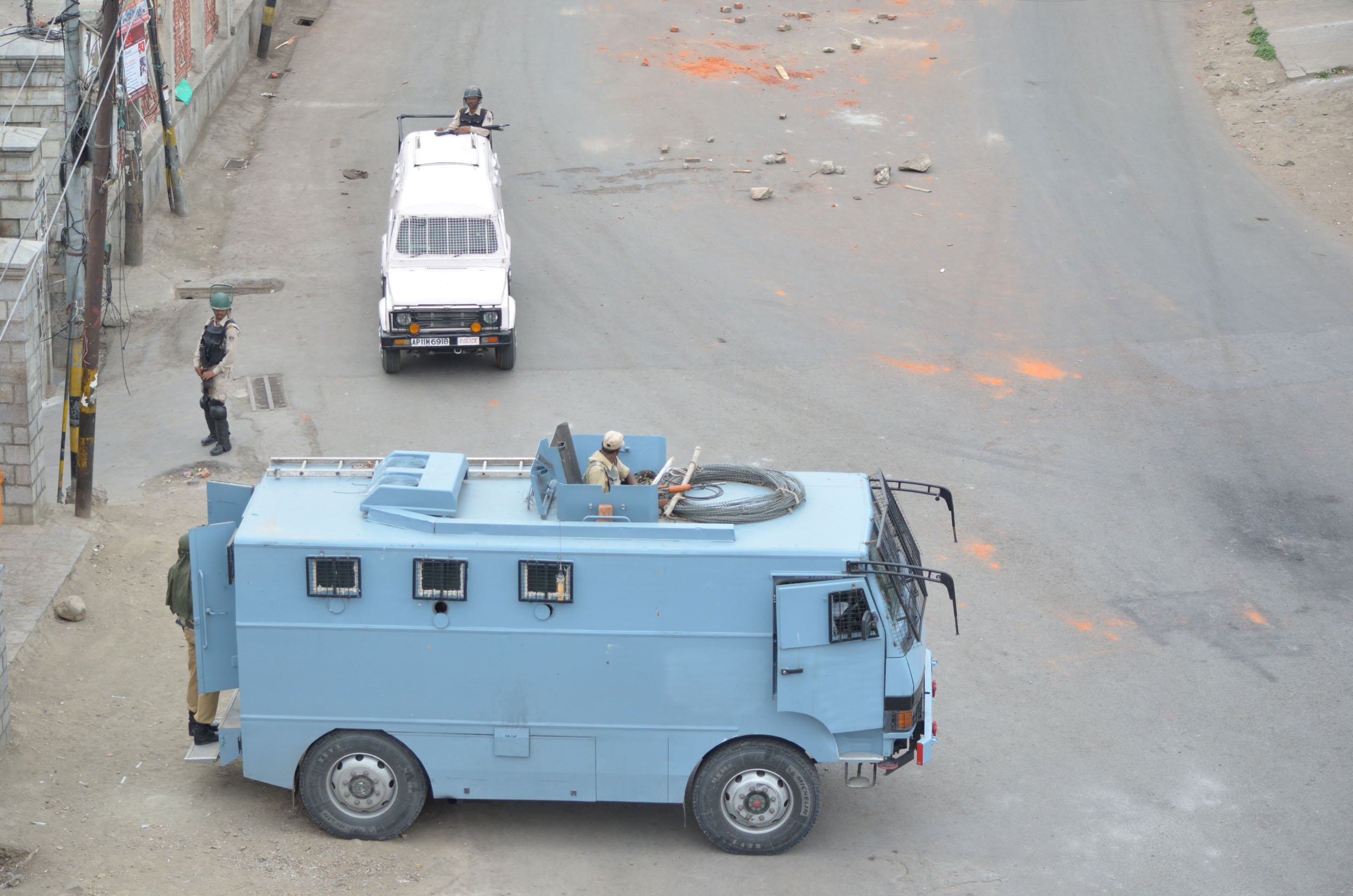
MYSURU: The on-going protests in Kashmir following the killing of Burhan Wani were met by police firing resulting in over 40 deaths and over 2,000 injured including hundreds of blindings due to pellet-shots.
This is of serious concern to every thinking Indian, whichever side of the argument he/she happens to be on, because large-scale social unrest in any part of India is a brake on the peaceful atmosphere essential for true progress and people-oriented development elsewhere in India.
Worse, the situation in Kashmir appears to be getting out of control, as police raided newspaper offices and printing presses early on the morning of July 16, confiscating printed copies, after having earlier shut down the internet, cable TV networks and telephone lines. The escalation appears to be a spiral of protest, stone-pelting mobs, shooting, more protesting mobs, more stone-pelting, more shooting.
Many have questioned the fact that similar large-scale violence and mayhem which took place in Haryana, by a section of the Jat community protesting about reservation in February 2016, and resulted in deaths, many rapes and huge destruction of public property, was met with rather mild if any serious official response.
There are hundreds of other on-going protests and social upheavals within India, but these are matters for Indians and India’s central and state governments to argue about and resolve by political means. They are matters internal to the Indian State and Nation. Any official agency outside of India passing comments or pontificating on these matters would be interference in the internal affairs of India.
On the current Kashmir situation, there are two distinct “camps”, one being those who are objecting to the use of “excessive” State force against “predominantly peaceful, unarmed protest” and condemning the deaths and blindings by pellet-shot of so many youths. They hold that since Kashmir is an integral and inalienable part of India, Kashmiris are also Indians, and such police/military violence against Indians over decades is not justified, and demand review of AFSPA leading to its repeal.
The other “camp” views the situation as fundamentally a law-and-order problem of fractious people, to be handled by police/military force, rather than its reality as primarily a political problem to be handled by a combination of political dialogue and State force. They therefore ask how, without police/military force (and AFSPA for the military), can mobs be dispersed to restore law and order.
Both camps appear to ignore the opinion of the people of Kashmir on the matter of their “self-determination” being central to the decades-long conflict between India and Pakistan, on the status of Kashmir. (Noting that the Kashmir valley is called “India Occupied Kashmir” or IOK by Pakistan).
In this situation, India’s superior strategic partner, the United States, has officially commented on the on-going Kashmir social unrest. [“J&K violence a matter of grave concern: US”; The Hindu, New Delhi; July 16, 2016; p.12.] The US State Department spokesperson, Elizabeth Trudeau, briefing the media in Washington, said that the US has spoken to both Pakistan and India on the matter, thus externalizing to Pakistan, a matter which is internal to India.
This will weaken India’s position in talks with Pakistan on Kashmir and its training of militants and infiltrating them into Kashmir. To date, Government of India (GoI) has not objected to this US interference. Indeed, even during UPA rule, US statements on India’s internal affairs and even on its own NSA spying on India was met with equivocation at best, but usually the silence of acceptance of a subordinate position.
Trudeau has also stated that the death of protestors was a matter of “grave concern” for Washington. This holier-than-thou attitude is presumptuous, especially considering the months-long and increasing violence by the US militarized police forces targeting their own Afro-American populations across that country(“Black-Lives-Matter”), the increasing number of shootings in universities and schools by US citizens, etc.
India should have immediately told Big Brother Uncle Sam that he should look at his own internal situation with graver concern than what is happening in Kashmir. Not, of course, that GoI can afford to treat lightly, gloss over or “write-off” (like NPAs in our public sector banks!) the death of protestors in Kashmir, but because the Indian people are already taking GoI to task. But GoI’s silence to Big Brother’s unasked-for comments on the one hand and attempts to seal-off the Valley from the rest of India on the other, are worrying.
The subordinate even servile attitude to the US government’s habitual arrogance was noticed in the diffident body language of then PM Manmohan Singh when he dealt with US presidents G.W.Bush as well as Obama [Vombatkere, S.G., “The Tales That Pictures Tell: Body Language in Strategy and Negotiations”; September 1,2013

